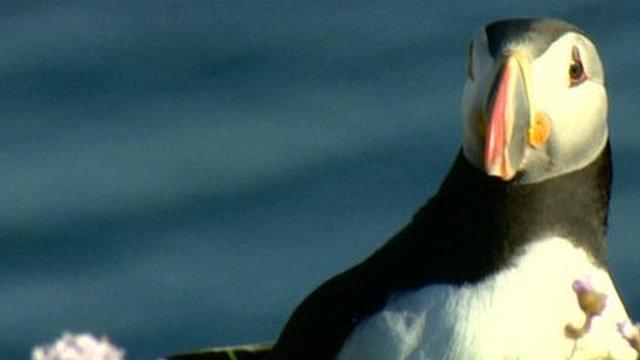Instagram bird filters showcase the UK's most threatened bird species
- Published
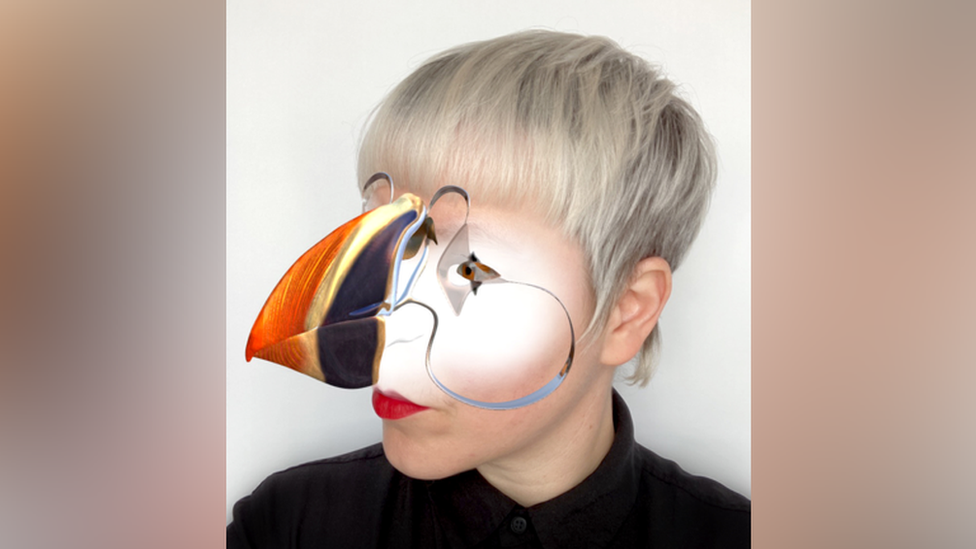
Puffins became a species under extreme threat in 2015
New Instagram filters will turn social media users into some of the UK's most threatened bird species.
The endangered capercaillie, curlew, puffin, lapwing and mistle thrush, have been turned into filters by artist Hanna Tuulikki to raise awareness.
The augmented reality filters were inspired by one of Northumberland's best-known artists, wood engraver and naturalist Thomas Bewick.
Each filter has a sound that merges the bird's call with a protest chant.
"Bewick is celebrated for his engravings, in particular of birds, as well as his technical innovation in printmaking, and in his day, he was also known for his radical politics," explains Hanna.
"As I learned about his work and life, I began to wonder how he would respond to the devastating biodiversity loss we are experiencing today?"
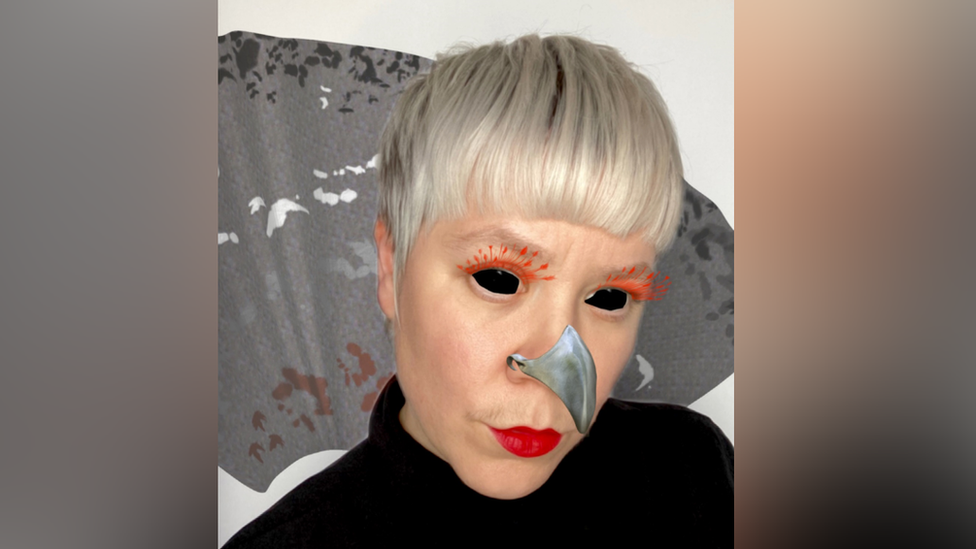
There are 70 species on the UK red list, including capercaillies
One of five filters will be released each day from Monday 20 November as part of the Avi-Alarm, external project.
'Innovative'
The filters, made in collaboration with digital artists Saturn Akin and MV Brown, are embedded with audio that fuses field recordings of each bird's alarm signal with the human voice.
Human protest chants were used to "sound the alarm" for bird life.
Avi-Alarm, is one of four commissions in the Arts and Humanities Research Council, external funded project On-Site/Off-Site, external, which is led by Newcastle University.
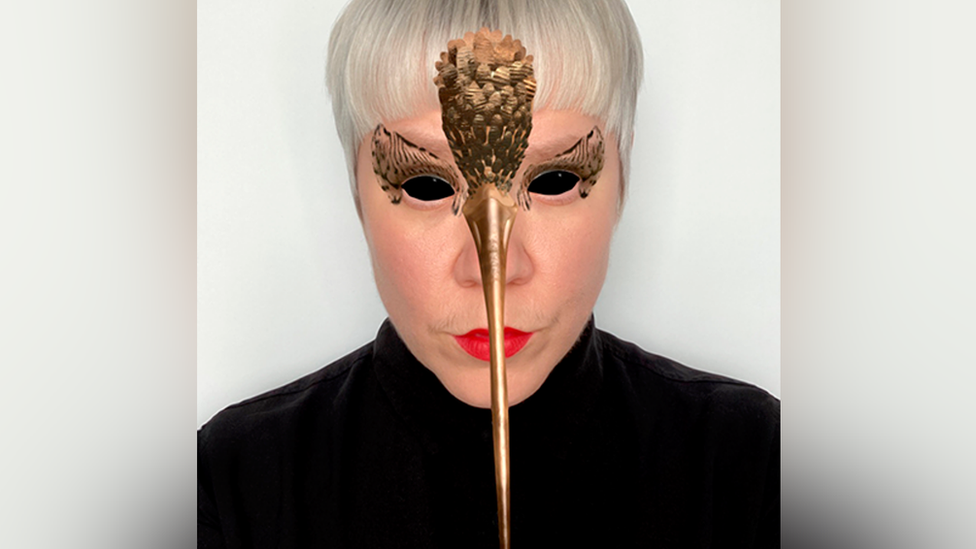
The filters were commissioned to explore how technology can promote heritage sites
Project lead Professor Vee Pollock said: "We look forward to seeing how people engage with Hanna's work, the concerns raised and hopefully also with Thomas Bewick's important contribution to both artistic practice and our appreciation of our environment. "

Follow BBC North East & Cumbria on X (formerly Twitter), external, Facebook, external and Instagram, external. Send your story ideas to northeastandcumbria@bbc.co.uk, external.
Related topics
- Published5 November 2017
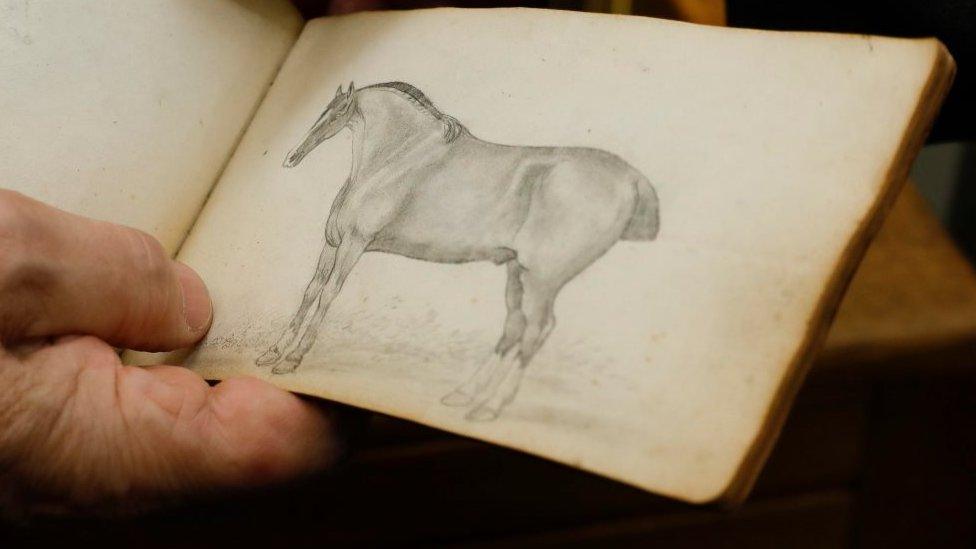
- Published29 October 2015
